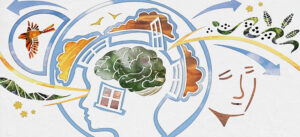
CIPD in Wales Awards 2024 Best Learning and Development Initiative
We had a fabulous evening at the CIPD in Wales awards on Friday! We wined, we dined and we danced the night away. It was fantastic… Read more »
Email: [email protected] Tel: 08000 489235 LinkedIn

3 new members of the Resolution at Work team have recently become certified in the fantastic Conflict Dynamics Profile model for conflict coaching, and we have a 4th member due to become certified in March.
As we congratulate Debbie, Sonia, and Naomi we thought it would be useful to share some more information on conflict coaching, the models we use at Resolution at Work Ltd and where it fits in the positive conflict resolution toolbox.
What is conflict coaching?
Conflict coaching is a process in which a specially trained coach provides 1-1 support to individuals to help them to improve the way they interact with colleagues, and to understand how they might manage and resolve interpersonal workplace conflicts and disputes. It is a future-oriented, empowering process that focuses on each person’s specific conflict management goals.
Resolution at Work Ltd coaches specialise in coaching those in conflict. We have coaches who are certified to use the CINERGY conflict management model, Conflict Dynamics Profile and Resilience@Work models. Together, these models help individuals to better understand their conflict behaviours, hot buttons and build resilience; all key skills in today’s ever changing and challenging working environment.
When can conflict coaching be used?
Conflict Coaching can be used in situations where individuals are having difficulty managing a conflict situation, or want to improve their working relationships. Where it is not possible to obtain the agreement of both parties to mediate or mediation is not seen as appropriate, conflict coaching can be an alternative to support for either one or both parties.
Conflict coaching can be used to support individuals to:
– Improve their knowledge, skills and abilities to more effectively manage interpersonal disputes.
– Develop understanding of how responses to conflict and changes in attitude and behavior can impact.
– Prevent an unnecessary escalation of a conflict situation.
– Prepare for a challenging conversation with another person or group.
– Develop stronger conflict management skills, for example in performance management and managing as a leader.
– Prepare for participation in mediation.
– Address matters that may arise post-mediation, such as lack of resilience, ongoing unresolved emotions and issues and/or relationship dynamics.
– Apply the skills learned in conflict management and other related training.
– Improve resilience and ability to manage future difficulties.
Potential benefits
Conflict coaching can:
– Promote real learning and self-reflection.
– Embed learning and help to sustain changes in behaviour.
– Empower individuals to better understand different people styles or communication styles.
– Build individual’s confidence in adapting styles and engaging in difficult conversations.
– Reconcile conflict situations by improving understanding and enabling individuals to move forward more positively.
How it works
Besides helping individuals to reach their related goals, the coach will provide constructive, non-judgemental input. The coach will use a step-by-step process aimed at keeping focused on reaching objectives. The coach will regularly check in to ensure progress is being made. The coach’s role is not to make decisions or to provide advice but to enable learning through self-reflection.
It is an entirely confidential process, with dedicated one to one support.
Coaching promotes real learning and is particularly powerful when individuals can be open and honest and commit to it fully.
Resilience coaching
There is a clear link between conflict and resilience. Where resilience is low conflicts maybe more likely to arise and escalate or adversely impact on individuals. It is also more difficult for individuals to fully engage in the efforts necessary to resolve conflict in these situations. Accordingly in some cases it may be necessary to provide support to enable clients to focus on improving resilience as a first step.
We have coaches accredited to use the Resilience@Work model. This provides a good basis to build an action plan to focus on the areas to build and sustain resilience. Resilience in this context will enable individuals to manage everyday stresses at work while staying healthy, rebound and learn from setbacks and prepare for future challenges in a proactive way. This is particularly important during challenging times of fast pace change.
If you have any queries about conflict coaching or our other services, do feel welcome to message us on LinkedIn or email: [email protected]
Follow us on LinkedIn, where we provide details of latest news, upcoming events and links to interesting articles around the topic of conflict resolution, mediation and training.
The report was very professional, it dealt with all the issues raised and was particularly thorough. It clearly took the time to fully understand all of the issues and background. It was complex but the report really helped to break it down and I’m hoping we can progress in a positive manner following the recommendations.
Group HR Manager, Energy Sector |

We had a fabulous evening at the CIPD in Wales awards on Friday! We wined, we dined and we danced the night away. It was fantastic… Read more »
3 new members of the Resolution at Work team have recently become certified in the fantastic Conflict Dynamics Profile model for conflict coaching, and we have… Read more »
It is not uncommon for conflict to arise between different teams. This can have considerable impact on both individuals and performance. A number of approaches can be used in this sort of scenario, including neutral assessment, team facilitation and group mediation.
Agreement could not be reached to enter into mediation in this situation and therefore coaching was an alternative support provided to one of the parties. The relationship between a majority shareholder and a shareholder/director was causing conflict. The relationship would be ok at times but disagreements would flare up from time to time and this was beginning to impact on the business.